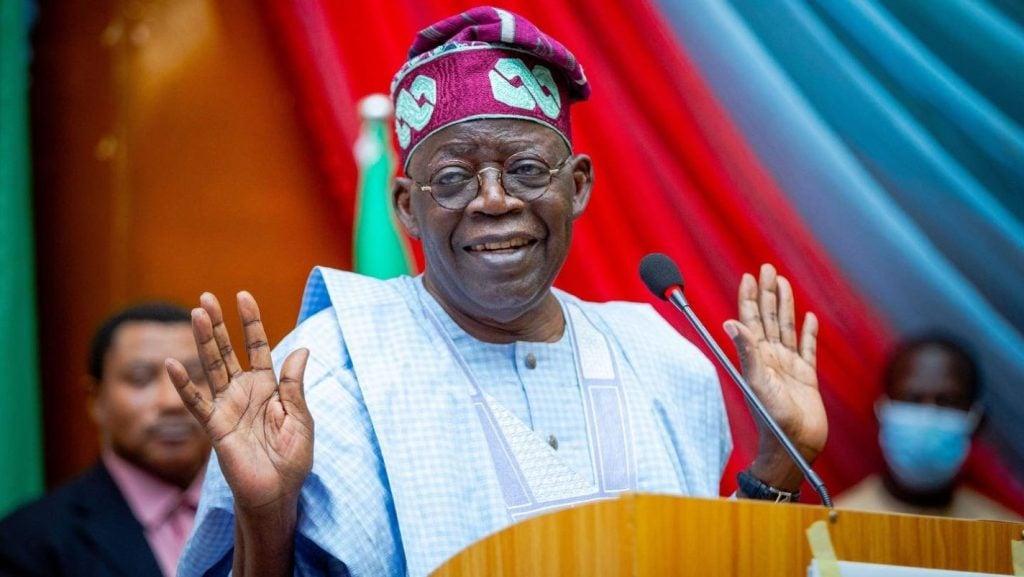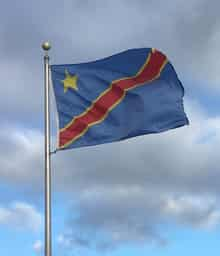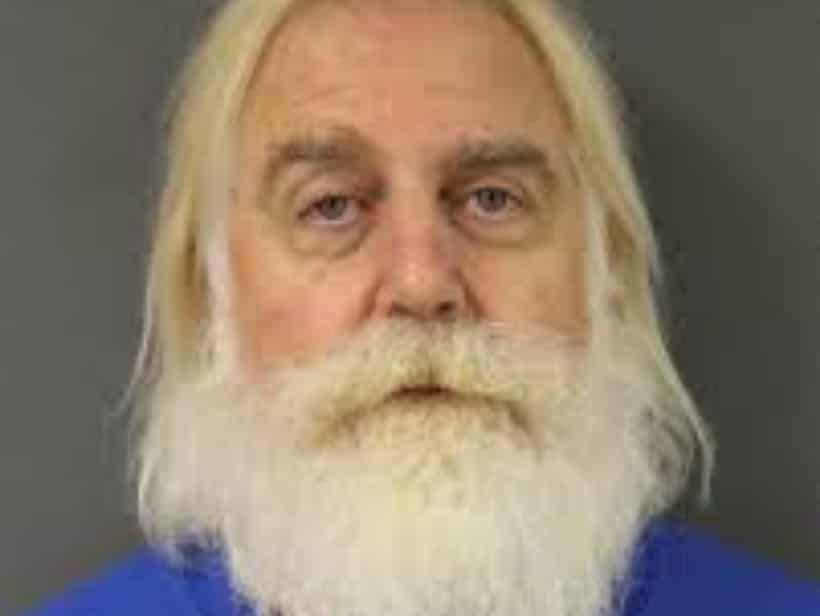Headline
SERAP Sues Tinubu Over ‘Failure To Probe Missing $2.1bn, N3.1trn of Subsidy Payments’

Socio-Economic Rights and Accountability Project (SERAP) has filed a lawsuit against President Bola Ahmed Tinubu over “the failure to probe the allegations that USD$2.1 billion and N3.1 trillion public funds of oil revenues and budgeted as fuel subsidy payments are missing and unaccounted for between 2016 and 2019.”
The suit followed the grim allegations documented by the Auditor-General of the Federation in the 2016 and 2019 annual reports that the public funds are missing.
In the suit number FHC/L/CS/1107/23 filed last Friday at the Federal High Court in Lagos, SERAP is seeking: “an order of mandamus to direct and compel President Tinubu to promptly probe allegations that USD$2.1 billion and N3.1 trillion public funds are missing and unaccounted for between 2016 and 2019.”
SERAP is also seeking: “an order of mandamus to compel President Tinubu to direct the anti-corruption agencies to promptly probe fuel subsidy payments made by governments since the return of democracy in 1999, name and shame and prosecute suspected perpetrators, and to recover any proceeds of crimes.”
READ ALSO: Probe Missing $2.1bn, N3.1trn Of Subsidy Payments Or Face Legal Action, SERAP Tells Tinubu
SERAP is also seeking: “an order of mandamus to direct and compel President Tinubu to use any recovered proceeds of crime as palliatives to address the impact of the subsidy removal on poor Nigerians, and to put in place mechanisms for transparency and accountability in the oil sector.”
In the suit, SERAP is arguing that: “The allegations that US$2.1 billion and N3.1 trillion of public funds are missing and unaccounted amount to a fundamental breach of national anticorruption laws and the country’s international obligations including under the UN Convention against Corruption to which Nigeria is a state party.”
SERAP is also arguing that, “The Tinubu government has constitutional and international legal obligations to get to the bottom of these allegations and ensure accountability for these serious crimes against the Nigerian people.”
According to SERAP, “Directing and compelling President Tinubu to promptly probe, name and shame and bring to justice the perpetrators and to recover any missing public funds would advance the right of Nigerians to restitution, compensation and guarantee of non-repetition.”
SERAP is further arguing that, “Allegations of corruption in fuel subsidy payments suggest that the poor have rarely benefited from the use and management of the payments.”
The suit filed on behalf of SERAP by its lawyers, Kolawole Oluwadare, Ms Adelanke Aremo, Ms Valentina Adegoke, and Ayomide Johnson, read in part: “There will be no economic growth or sustainability without accountability for the human rights crimes.”
READ ALSO: SERAP Files Contempt Suit Against FG Over Failure To Recover Double Pay From Ex-governors
“Poor and socio-economically vulnerable Nigerians should not be made to continue to pay the price for the stealing of the country’s oil wealth while state and non-state actors pocket public funds.”
“According to the audited reports between 2016 and 2019 by the Auditor General of the Federation (AGF), the Nigerian National Petroleum Corporation (NNPC) failed to remit N663,896,567,227.58 into the Federation Account. The Auditor-General fears that the money may be missing.”
“The NNPC also reportedly failed to account for the allocation of crude oil to refineries in 2019. 107,239,436.00 barrels of crude oil were lifted as domestic crude without any document. The Auditor-General fears that the crude valued at N55,891,009,960.63 may have been diverted.”
“The NNPC in 2019 also failed to remit N1,955,354,671,268.66 and N55,157,702,848.74 of generated revenues into the Federation Account, contrary to Section 162(1) of the Nigerian Constitution 1999 [as amended]. The Auditor-General fears that the money may have been diverted.”
“The NNPC also failed to account for N4,572,844,962.25 of ‘domestic gas receipts’, thereby ‘reducing the distributable revenue in the Federation account.’ The NNPC also in 2019 failed to account for 22,929.84 litres of PMS pumped from refineries and valued at N7,056,137,180.00.”
“The NNPC also ‘illegally classified’ 239,800 barrels of crude oil valued at N5,498,045,220 as ‘crude oil losses.’”
“The Department of Petroleum Resources (DPR) in 2019 also reportedly failed to remit US$1,278,364,595.49 in revenue to the Federation Account. The money was deducted by the NNPC from the Oil and Gas Royalty assessed by the DPR.”
“The DPR in 2019 also deducted N19,840,081.29 as ‘stamp duty’ payments from contractors and consultants but the DPR instantly paid back the money to the contractors and consultants instead of remitting it to the treasury.
READ ALSO: Fuel Subsidy: ‘Suspend Disbursement Of $800m Loan To FG’, SERAP Tells World Bank
“The DPR in 2019 also paid N137,225,973.35 to contractors and consultants for various contracts and consultancies but failed to deduct stamp duty.
“The DPR also paid N11,856,088,271.92 as salaries for 2019 but failed to deduct N118,560,882.72 as contribution of 1% Industrial Training Fund (ITF). The DPR in 2019 also failed to transfer US$35,738,342.95 year balance.
“The DPR in 2018 also withdrew without any explanation US$759,387,755.10 from DPR Signature Bonus Account rather than paid the money into the Federation Account.”
“Subsidy records show that N443,940,559,974.80 was paid as total subsidy for 2016 but the money was not budgeted for. The payments were for outstanding Petroleum Support Fund (PSF) commitments for year 2015. However, there was no payment in 2016. Only outstanding payments for previous years 2014 and 2015 and interest payments were made in 2016.”
“The Auditor-General fears that the oil marketers that received the subsidy payments may not have been ‘eligible to draw from the Petroleum Support Fund as the Petroleum Products Pricing and Regulatory Authority (PPPRA) failed to provide any document on the payments.’”
“N39,141,210,181.74 was also paid from the Federation Account in 2016 to different Oil Marketers in 26 transactions, being Payments of Interest and Foreign Exchange Differential on Subsidy but without any document.”
READ ALSO: SERAP Sues Buhari Over Failure To ‘Reverse Unlawful Electricity Tariff Hike’
“The NNPC also made ‘zero profit’ and recorded ‘losses from its joint ventures in 2016. This is contrary to expectations that profits should be made from the joint ventures.’”
“The Ministry of Petroleum Resources, Abuja in 2016 paid N14,490,000.00 for the supply of 3 Nissan Almera Saloon vehicles 1.5 to the Ministry without proper documentation. The purchase of ‘the vehicles were made through direct procurement without competitive bidding by at least three companies, as required by Financial Regulations. There was no advertisement and bidding for this contract.’”
“Although ‘N12,442,500.00 was approved by the Bureau of Public Procurement for the vehicles, the Ministry made an overpayment of N2,047,500.00 to the car company.’”
No date has been fixed for the hearing of the suit.
Headline
South Korea, Japan Protest China, Russia Aircraft Incursions

South Korea and Japan reacted furiously on Wednesday after Chinese and Russian military aircraft conducted joint patrols around the two countries, with both Seoul and Tokyo scrambling jets.
South Korea said it had protested with representatives of China and Russia, while Japan said it had conveyed its “serious concerns” over national security.
According to Tokyo, two Russian Tu-95 nuclear-capable bombers on Tuesday flew from the Sea of Japan to rendezvous with two Chinese H-6 bombers in the East China Sea, then conducted a joint flight around the country.
The incident comes as Japan is locked in a dispute with China over comments Prime Minister Sanae Takaichi made about Taiwan.
READ ALSO:China Backs Nigeria, Warns Against Foreign Interference
The bombers’ joint flights were “clearly intended as a show of force against our nation, Defence Minister Shinjiro Koizumi wrote on X Wednesday.
Top government spokesman Minoru Kihara said that Tokyo had “conveyed to both China and Russia our serious concerns over our national security through diplomatic channels”.
Seoul said Tuesday the Russian and Chinese warplanes entered its air defence zone and that a complaint had been lodged with the defence attaches of both countries in the South Korean capital.
“Our military will continue to respond actively to the activities of neighbouring countries’ aircraft within the KADIZ in compliance with international law,” said Lee Kwang-suk, director general of the International Policy Bureau at Seoul’s defence ministry, referring to the Korea Air Defence Identification Zone.
READ ALSO:Trial For South Korean Woman Accused Of ‘Suitcase Murders’ Starts Today
South Korea also said it deployed “fighter jets to take tactical measures in preparation for any contingencies” in response to the Chinese and Russian incursion into the KADIZ.
The planes were spotted before they entered the air defence identification zone, defined as a broader area in which countries police aircraft for security reasons but which does not constitute their airspace.
Japan’s defence ministry also scrambled fighter jets to intercept the warplanes.
Beijing later Tuesday confirmed it had organised drills with Russia’s military according to “annual cooperation plans”.
READ ALSO:South Korean Actress Kim Sae-ron Found Dead In Seoul Apartment
Moscow also described it as a routine exercise, saying it lasted eight hours and that some foreign fighter jets followed the Russian and Chinese aircraft.
Since 2019, China and Russia have regularly flown military aircraft into South Korea’s air defence zone without prior notice, citing joint exercises.
In November last year, Seoul scrambled jets as five Chinese and six Russian military planes flew through its air defence zone.
Similar incidents occurred in June and December 2023, and in May and November 2022.
READ ALSO:Russia Insists Ukraine Must Cede Land Or Face Continued Military Push
Meanwhile, Tokyo said Monday it had scrambled jets in response to repeated takeoff and landing exercises involving fighter jets and military helicopters from China’s Liaoning aircraft carrier as it cruised in international waters near Japan.
It also summoned Beijing’s ambassador after military aircraft from the Liaoning locked radar onto Japanese jets, the latest incident in the row ignited by Takaichi’s comments backing Taiwan.
Takaichi suggested last month that Japan would intervene militarily in any Chinese attack on the self-ruled island, which Beijing claims as its own and has not ruled out seizing by force.
AFP
Headline
Thousands Reported To Have Fled DR Congo Fighting As M23 Closes On Key City

Fierce fighting rocked the eastern Democratic Republic of Congo on Tuesday as the Rwanda-backed M23 militia rapidly advanced towards the strategic city of Uvira, with tens of thousands of people fleeing over the nearby border into Burundi, sources said.
The armed group and its Rwandan allies were just a few kilometres (miles) north of Uvira, security and military sources told AFP.
The renewed violence undermined a peace agreement brokered by US President Donald Trump that Kinshasa and Kigali signed less than a week ago, on December 4.
Trump had boasted that the Rwanda-DRC conflict was one of eight he has ended since returning to power in America in January.
READ ALSO:Ambassadorial Nominees: Ndume Asks Tinubu To Withdraw List
With the new fighting, more than 30,000 people have fled the area around Uvira for Burundi in the space of a week, a UN source and a Burundian administrative source told AFP.
The Burundian source told AFP on condition of anonymity he had recorded more than 8,000 daily arrivals over the past two days, and 30,000 arrivals in one week. A source in the UN refugee agency confirmed the figure.
The Rwanda-backed M23 offensive comes nearly a year after the group seized control of Goma and Bukavu, the two largest cities in eastern DRC, a strategic region rich in natural resources and plagued by conflict for 30 years.
Local people described a state of growing panic as bombardments struck the hills above Uvira, a city of several hundred thousand residents.
“Three bombs have just exploded in the hills. It’s every man for himself,” said one resident reached by telephone.
READ ALSO:South Africa Beat DR Congo In shootout To Finish Third At AFCON
“We are all under the beds in Uvira — that’s the reality,” another resident said, while a representative of civil society who would not give their name described fighting on the city’s outskirts.
Fighting was also reported in Runingo, another small locality some 20 kilometres (12 miles) from Uvira, as the M23 and the Rwandan army closed in.
Burundi views the prospect of Uvira falling to Rwanda-backed forces as an existential threat, given that it sits across Lake Tanganyika from Burundi’s economic capital Bujumbura.
The city is the main sizeable locality in the area yet to fall to the M23 and its capture would essentially cut off the zone from DRC control.
READ ALSO:Stampede Kills 37 During Army Recruitment In Congo Capital
Burundi deployed about 10,000 soldiers to eastern DRC in October 2023 as part of a military cooperation agreement, and security sources say reinforcements have since taken that presence to around 18,000 men.
The M23 and Rwandan forces launched their Uvira offensive on December 1.
Rich in natural resources, eastern DRC has been choked by successive conflicts for around three decades.
Violence in the region intensified early this year when M23 fighters seized the key eastern city of Goma in January, followed by Bukavu, capital of South Kivu province, a few weeks later.
– Regional risk –
The peace deal meant to quell the fighting was signed last Thursday in Washington by Congolese President Felix Tshisekedi and his Rwandan counterpart Paul Kagame, with Trump — who called it a “miracle” deal — also putting his signature to it.
READ ALSO:FULL LIST: US To Review Green Cards From 19 ‘Countries Of Concern’ After Washington Shooting
The agreement includes an economic component intended to secure US supplies of critical minerals present in the region, as America seeks to challenge China’s dominance in the sector.
But even on the day of the signing, intense fighting took place in South Kivu, where Uvira is located, which included the bombing of houses and schools.
Witnesses and military sources in Uvira said that Congolese soldiers fleeing the fighting had arrived in the city overnight Monday and shops were looted at dawn.
Several hundred Congolese and Burundian soldiers had already fled to Burundi on Monday, according to military sources, since the M23 fighters embarked on their latest offensive from Kamanyola, some 70 kilometres north of Uvira.
Since the M23’s lightning offensive early this year, the front had largely stabilised over the past nine months.
Burundian President Evariste Ndayishimiye warned in February there was a danger of the conflict escalating into a broader regional war, a fear echoed by the United Nations.
Headline
‘Santa Claus’ Arrested For Possessing, Distributing Child Sexual Abuse Material

A 64-year-old man from Hamilton Township has been arrested in the United States after investigators linked him to the possession and distribution of child sexual abuse material.
The suspect, identified as Mark Paulino, had been working as a “Santa for hire” at holiday events, a role that placed him in repeated contact with children.
Mercer County officials said the investigation began on 4 December when detectives were alerted to suspicious online activity involving the uploading of child pornography from a residence in Hamilton Township. The probe quickly identified Paulino, a retired elementary school teacher, as the person involved.
READ ALSO:Nigerian Ringleader Of Nationwide Bank Fraud, Money Laundering Jailed In US, Says FBI
Police stated that Paulino had presented himself online as a retired teacher and had recently performed as Santa Claus for photographs and private, corporate, and organisational events. “Because this role involved direct, repeated contact with children, detectives worked around the clock to secure a search warrant,” authorities explained.
The warrant was executed on 5 December, during which police seized multiple items regarded as evidentiary. Paulino was taken into custody without incident and charged with possession and distribution of child sexual abuse materials, as well as endangering the welfare of a child.
Prosecutors have filed a motion to detain him pending trial. The investigation remains ongoing, and authorities have urged members of the public with relevant information to come forward.

 News4 days ago
News4 days agoRufai Oseni Breaks Silence On Alleged Suspension From Arise TV

 Headline4 days ago
Headline4 days agoJUST IN: Soldiers Announce Military Takeover Of Govt In Benin Republic

 News4 days ago
News4 days agoOAU Unveils Seven-foot Bronze Statue Of Chief Obafemi Awolowo

 News5 days ago
News5 days agoFULL TEXT: Gen Musa’s Inaugural Speech As Defence Minister

 Politics3 days ago
Politics3 days agoJUST IN: Tinubu Holds Closed-door Meeting With Rivers, Ebonyi Govs

 News3 days ago
News3 days agoWhy My Lineage Qualifies Me For Awujale Throne — K1 De-Ultimate

 Metro4 days ago
Metro4 days agoJUST IN: Military Jet Crashes In Niger Community

 Politics3 days ago
Politics3 days agoTinubu, Six APC Governors Hold Closed-door Meeting At Aso Villa

 Entertainment4 days ago
Entertainment4 days agoShola Allyson Finally Reveals Why She Refuses To Reference Jesus In Her Songs [VIDEO]

 News4 days ago
News4 days agoWoman Taken For Dead Wakes Up Inside Coffin Few Minutes To Her Cremation






























